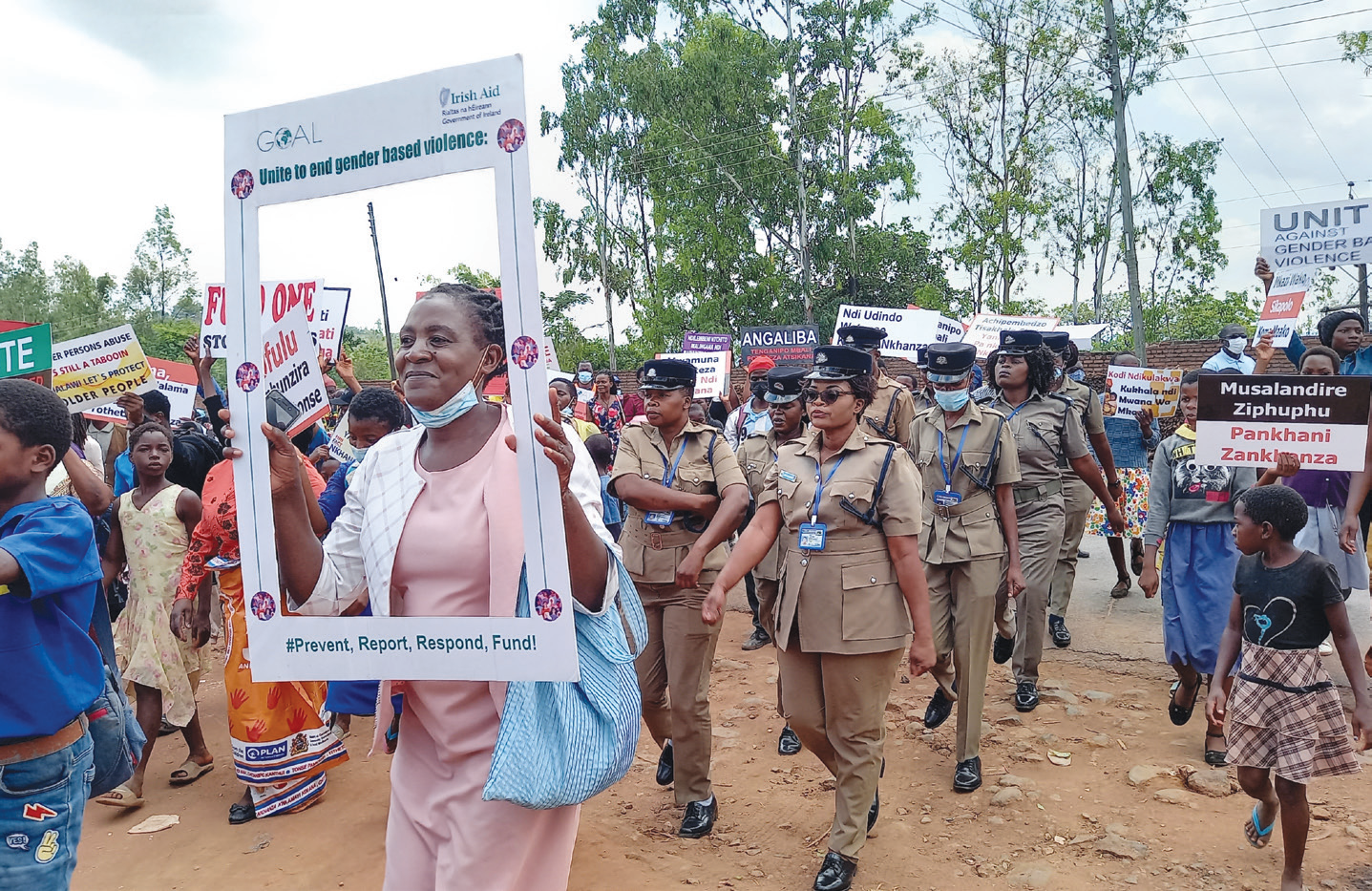GBV services under one roof
In August 2020, a 16-year-old girl in Machinjiri Township, Blantyre, was defiled by a catechist within a Catholic church grounds.
However, some prominent church elders, especially men loyal to the teacher of the church’s doctrine, agreed to bury the case they considered an embarrassment to their denomination.

But a woman who once attended a mass awareness meeting convened by Blantyre District Social Welfare Office in the township, dialled 116 toll-free helpline and informed the district child protection officer what had happened at Chikapa Catholic Church.
John Manyumba, the child rights defender, recalls: “We immediately rushed to Machinjiri and traced the victim, who was being kept indoors by her father, a church elder.
“We faced resistance, but later took the child for a medical examination at Queen Elizabeth Central Hospital [QECH]one-stop centre which confirmed the case and police arrested the suspect.”
One-stop centres in the country’s major hospitals have put multiple services under one roof for victims of sexual and physical violence.
They do not have to endure arduous walks to the nearest police station, health facility and psychosocial counsellor.
Manyumba is happy that after going through all court processes, justice was served to the Machinjiri girl and the court slapped the suspect with 21 years’ imprisonment.
“The one-stop centre facility has helped in the fight against gender-based violence [GBV]. Nowadays, more and more Blantyre residents are coming forward to report GBV cases to the centre,” he states.
According to the child rights protector, the most-reported case is defilement.
The centre has assisted 673 people this year, up from 542 in 2020.
“We have a case management forum comprising different players from different organisations involved in child protection here in Blantyre, so our referral system is just intact and we don’t have problems following up cases,” says Manyumba, urging the public to utilise the facilities.
The one-stop centre brings together skilled service providers from different backgrounds and expertise to ensure GBV survivors access quality services that they need under one roof. They include police officers, health workers, counsellors and faith leaders who provide psychosocial care.
Mphatso Nawena, one-stop centre coordinator at Qech, says the facility sees up to 80 survivors of sexual violence monthly.
However, most of the clients are young girls below the age of 16.
“We receive cases from Blantyre, with few referrals from other districts,” she states. “Much as boys also report GBV, most cases are reported by young girls.
Nawena belongs to a team of health workers who provide medical treatment, care and support to clients.
They also conduct check-ups to ascertain the occurrence of physical and sexual violence.
Nawena explains: “Firstly, we take history of the client and everything that happened, then the client goes through medical examinations, including HIV testing, screening for sexually transmitted infections and vaginal swab to examine semen.
“Afterwards, the clients go through the treatment process where they are given post-exposure prophylaxis, antibiotics and emergency contraceptives to prevent HIV, other STIs and unwanted pregnancies. This has to be done within 72 hours,” she explains.
The GBV survivors also undergo counselling sessions by trained counsellors.
Nawena’s team produces medical reports prosecutors tender in court as evidence for the occurrence of GBV, including sexual assault.
The health workers also stand in the court as witnesses.
However, she says there is a need for more awareness as most GBV cases go unreported because abuse has been normalised.
“Many people do not understand their duties and most perpetrators are right in the victims’ homes,” Nawena says.
Blantyre community policing co-ordinator Dan Sangwa cited transportation as one of the challenges that slow down the response and follow-ups when cases occur in remote localities.
He wishes every health centre had a one-stop centre to quicken the process as those in district hospitals are usually overwhelmed.
Sangwa urged authorities to identify safe homes for survivors of sexual violence and other forms of GBV to avoid intimidation or continuous abuse.
“I appeal to Malawians to stop shielding perpetrators of GBV,” he says. “Cases take long because perpetrators are not known, lack of evidence and that some parents and guardians meddle in the justice process.”
People Serving Girls at Risk executive director Caleb Ng’ombo hailed the one-stop centres for easing access to services needed by victims of sexual violence. “We are happy to see girls who have been sexually victimised getting all the assistance with maximum privacy under one roof. This is commendable and it gives confidence to us as human rights defenders that the victims are getting the comprehensive support they need,” he says.





